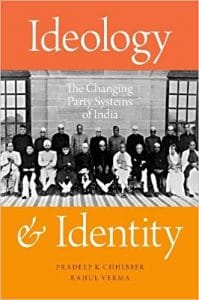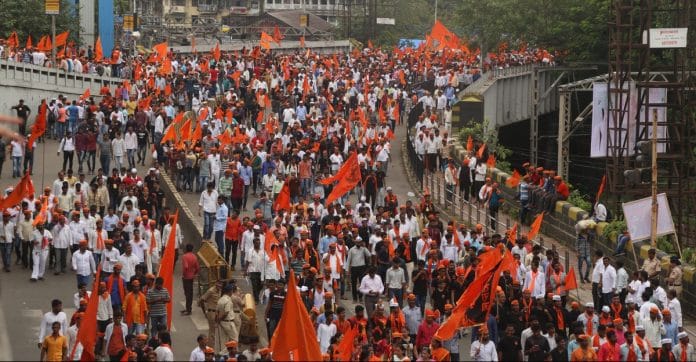In many cases, opposition to reservations is largely a reflection of caste-based prejudice masked by other criticisms.
“My birth is my fatal accident.” Rohit Vemula, a PhD scholar at the University of Hyderabad, and a Dalit by birth, wrote those words in his suicide note of January 2016. Rohit’s suicide evoked angry responses across the country, and many called it an “institutional murder.” Social activists called for a law to protect students from caste-based discrimination in universities, where many other Dalit students have taken their lives over the past few years. Most people from marginalized caste groups are unable to reach institutions of higher education; those who do continue to face discrimination in their everyday lives. To redress this situation, the Indian constitution institutionalized a system whereby such discriminatory practices as untouchability are prohibited by law, and it attempted to redress the historic injustices done to Dalits and Scheduled Tribes by allowing caste-based quotas in elections, education, and government jobs.5
Ironically, in 2015–2016, various other caste groups across the country— including the Kapus in Andhra, the Marathas in Maharashtra, the Patidars in Gujarat, and the Jats in northwestern India (primarily Haryana and western Uttar Pradesh)—staged massive protests to demand recognition as backward castes so that they, too, could avail themselves of quotas in education and government jobs. But the groups just named all make up dominant agrarian communities in their respective regions and are much more prosperous than other local communities. Why, then, were these groups demanding reservations?
One explanation is that these communities want a share in the spoils of the reservations system, and their desire is directly linked to the failure of the agrarian sector as well as to their anxiety about their ability to earn a stable income. Therefore, getting a job in the government sector has become a priority for individuals from these caste groups. But there are fewer government jobs these days. In 1992–1993, when India’s population was 839 million, there were 19.5 million jobs in the public sector; now there are 1.2 billion Indians, and the number of jobs in the public sector has shrunk to 17.6 million. Jobs in the private sector, where the reservations system does not apply, are precarious and badly paid. Therefore, these agrarian communities’ demands for reservations, and for inclusion as OBCs, reflect the challenges that they are facing in the job market. And the search for government jobs is linked to the marriage market as well: parents of young women prefer grooms with stable incomes, and so young men with government jobs are often preferred; thus, with fewer young women than young men in these castes, the marriage market offers stiff competition.
Another explanation is that the demand for quotas among these relatively better-off castes represents an effort to undermine the entire system of reservations. In the words of Hardik Patel, the twenty-three-year-old Patel Anamat Andolan Samiti (PAAS) leader we met in chapter 3, “Remove reservations for everyone. But if, because of politics, you cannot do it, give everyone reservations. Free all, or enslave all of India.” Indeed, the idea that reservations were meant to create a level playing field for those, like the Dalits, who have been deprived of such social assets as education and public space has been overshadowed by the demand for reservations on the part of many different groups. Some want reservations because they see them as an employment-generating scheme, or as a poverty-alleviation measure, or as a matter of their right to the educational and economic opportunities offered by the state, or as a way to ensure equality of outcomes and not just of opportunity, or, increasingly, as an income-guarantee scheme.
In many cases, opposition to reservations is largely a reflection of caste-based prejudice, which in turn is often masked by criticisms involving a number of beliefs—for example, the belief that reservations policies have achieved only limited success in solving the problems of the Scheduled Castes and Scheduled Tribes, or that economic criteria should replace the criterion of caste when it comes to qualifying for reservations because the economically better-off among the Scheduled Castes and Scheduled Tribes have benefited more than the poor, or that reservations hamper economic efficiency, or that there is a need to set limits on reservations policies. But sclerotic job growth and the status attached to a job in the public sector have also raised anxiety among the general castes (or upper castes or those who are not covered under any sort of quota benefits) that they will be shut out of the few government jobs that remain available. According to Hardik Patel,
“What we say is that all the remaining communities should come out to demand quotas for them[selves]. Then the government will have to think about ending the quota policy. . . . We are not against the beneficiaries of the reservation policy. We are not opposed to [a Scheduled Castes or Schedules Tribes] candidate becoming a district collector [under the reservations policy]. What we are against is his son becoming a magistrate under the quota. . . . We don’t mind if they get admission [to government colleges] with [marks of only] only 60 percent . . . but we very much mind when we can’t get admission even with [marks of] 85 percent.”
This anxiety about gaining admission to a good college, or finding employment after earning a college degree, can be seen among many of those who are demanding either an end to the reservations system or the granting of similar privileges to their own communities. For example, Prakash Gurav, a twenty-six-year-old who handles accounts in a small car-rental agency in Mumbai, complained to a journalist writing a story about caste and the reservations system, “I was refused admission to a college because the general seats were full, but I am sure if I were from a backward caste, I would have got a seat.” Similarly, Keshav Lather, protesting on behalf of reservations for the Jats in Sonipat, Haryana, earned a college degree in 2013 but reported to a journalist that he was still unemployed after two years; he has applied for work in the public sector many times, he said, but was passed over because of reservations policies. “A professional education does not necessarily mean a good job,” he said, adding that he and others “were surprised at the type of jobs and money offered to many of our friends.” Thus, many among the middle classes see reservations as thwarting their aspirations.
Tarunabh Khaitan writes in the Indian Express, “The argument in favour of affirmative action—for groups that suffer substantial, pervasive and abiding forms of disadvantage—is compelling. . . . Whether we should have affirmative action is an easy enough question to answer in our social context. It is the ‘how’ that deserves more attention.” Khaitain continues:
“Our chosen means—group-membership-based reservations—is one of the crudest, least imaginative and costliest (for the beneficiary group) forms of affirmative action. It is crude in two different respects: One, the criteria for allocation of benefits; and two, the nature of the allocated benefits. By increasing the social salience of group membership, it causes expressive harms to its ostensible beneficiaries. Resentment against the beneficiary group increases, and existing prejudices and stereotypes against the group are reinforced.”
As is evident in the remarks of the twenty-three-year-old PAAS leader, the Patels seem to be agitating for reservations, and yet they also seem to be against the policy. This apparent paradox has been noted by Dhirubhai Sheth, a member of the first National Commission for Backward Classes (NCBC). Sheth points out that the Patels, despite their demands, have not followed the normal procedure of applying to the NCBC for reservations: “It appears they are creating a kind of pressure on the government with a hidden message against reservation[s] in the name of asking for [them].” Indeed, the reservations system, as currently set up, has both failed to benefit historically marginalized castes, as it was intended to do, and prompted more and more other groups to demand a share of its benefits.
 Excerpted with permission from “Ideology and Identity: The Changing Party Systems of India” by Pradeep Chhibber and Rahul Verma, Oxford University Press.
Excerpted with permission from “Ideology and Identity: The Changing Party Systems of India” by Pradeep Chhibber and Rahul Verma, Oxford University Press.






